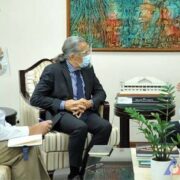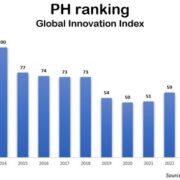UN Philippines commits support for Government to address Philippine unemployment which, at 10.4 percent, is the highest the country has seen in 15 years

The United Nations (UN) in the Philippines, led by UN Resident Coordinator Gustavo Gonzalez, met this week with Department of Labor and Employment Secretary Silvestre Bello III to convey its commitment to support the Philippines in addressing the impact of the COVID-19 pandemic on employment and the economy in order to address Philippine unemployment which, at 10.4 percent, is the highest the country has seen in 15 years.
Gonzalez, together with Khalid Hassan, Director of the International Labour Organization (ILO) Country Office for the Philippines, said that the UN will reinforce its assistance to build a better future of work, strengthen social dialogue, and support the country in implementing the Decent Work Country Programme. The upcoming Jobs Summit on May 1, Labor Day, for instance, will have the full backing of the UN System in the country.
Secretary Bello appreciated the commitment of the UN to support the upcoming Jobs Summit. The Jobs Summit will bring together national government agencies and relevant stakeholders to tackle economic recovery and jobs generation. It is being organized by the National Employment Recovery Strategy (NERS) Task Force and the Task Group on Economic Recovery (TGER).
“We welcome the organization of the Jobs Summit in the Philippines and we will make sure the UN system provides timely and high quality support,” said Gonzalez.
Bello said, “I welcome the UN support and appreciate the technical assistance from the ILO and the UN on the future of work. I look forward to possible areas of cooperation where the UN and ILO could extend support in terms of employment facilitation, especially in this time of pandemic.”
The Summit will seek to identify priority concerns of labor and employer groups to address employment problems; inform stakeholders on actions taken by the Government towards recovery from the pandemic; and provide an avenue for dialogue with government representatives to discuss areas of cooperation and collaboration with relevant stakeholders. Sectoral consultations hosted by various members of the NERS Task Force, as well as pre-summit meetings with the employers and workers, will culminate in the Jobs Summit.
Gonzalez said, “The pandemic has accelerated existing trends in remote work, e-commerce, and automation, but also weakened the quality of jobs, coupled with growing rates of unemployment. Open and strong social dialogue among key partners is vital.”
“Pooling our knowledge and capacities for all-inclusive policies to generate decent work is our priority,” he added.
In preparation for the Jobs Summit, the ILO has worked with the DOLE and other stakeholders on studies assessing the impact of COVID-19 on the Philippines’ labor market as well as on how technological changes are affecting jobs and workers.
The UN in the Philippines has also supported joint researches on economic diversification focusing on growth opportunities amid disruptions on supply chains and on the current state of Micro, Small, and Medium Enterprises (MSMEs). Initial consultations were held among stakeholders, government, employers, workers organizations, and development partners. Social dialogue and a collaborative industrial relations culture will be crucial in promoting sustainable recovery from pandemic.
“Government, workers, and employers need to work together for human-centered and consensus-based policies not only for economic recovery but also for labour market governance,” said Hassan. “This should be based on cooperation and compliance with standards and laws. Otherwise, conflicts can affect productivity of investments and become hurdles in the recovery process as well as in achieving the Sustainable Development Goals.”






